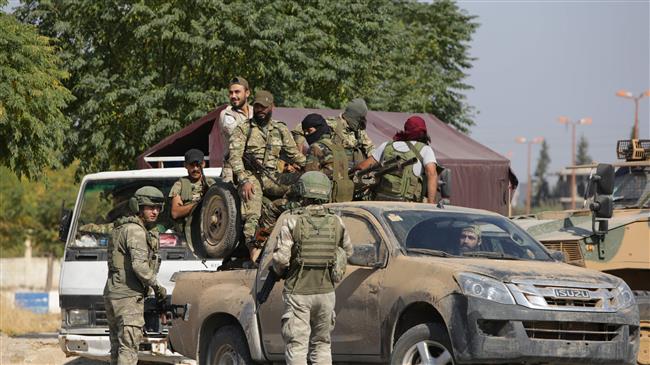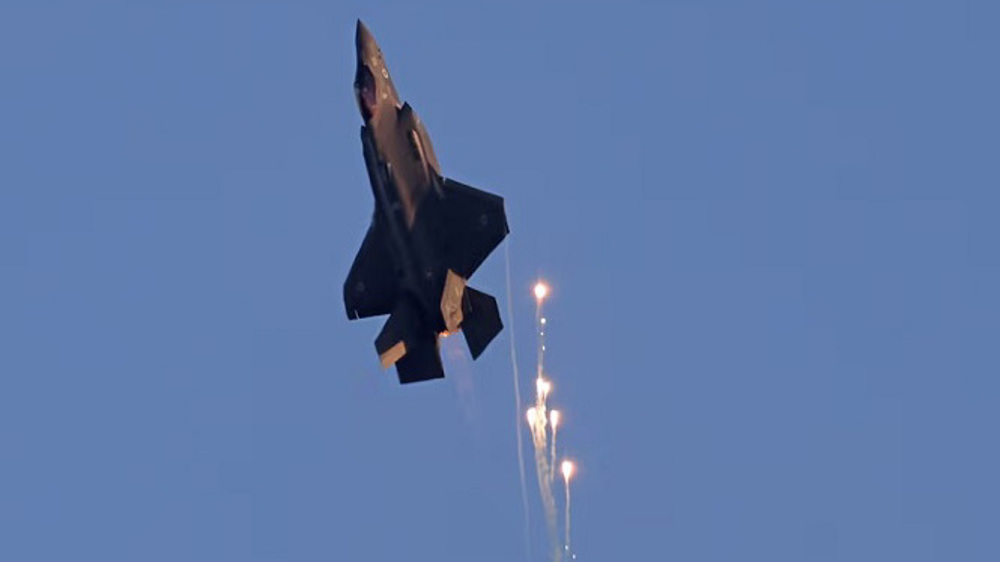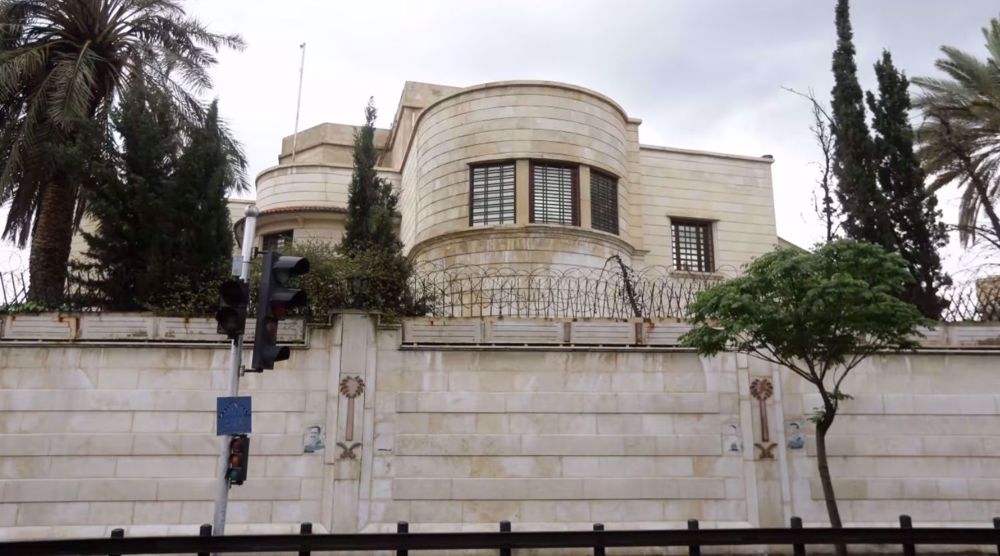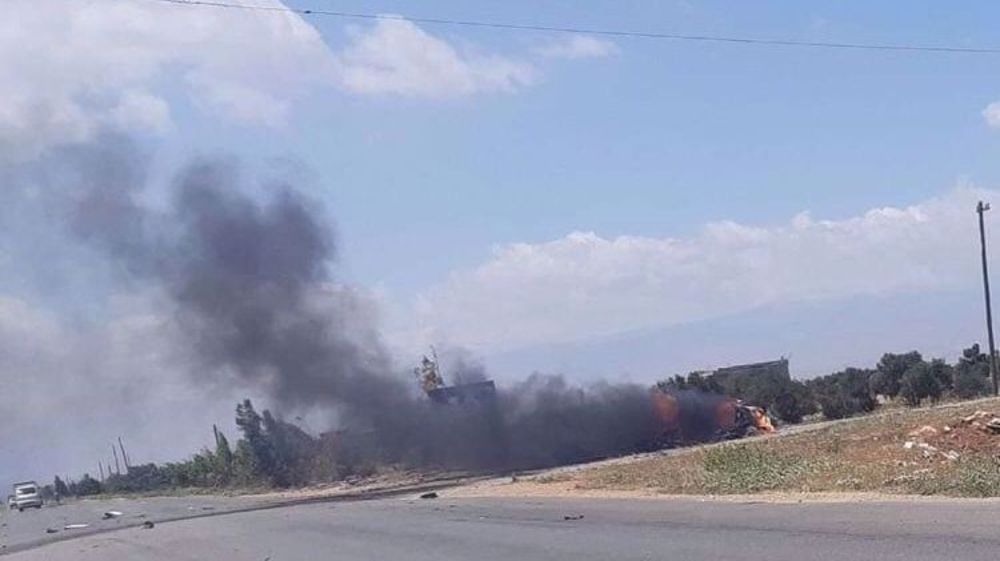Turkey says it will not withdraw from observation posts in Syria's Idlib
The Turkish defense minister says Turkey will not withdraw from its observation posts in Syria’s northwestern province of Idlib as the Damascus government's ground forces have recently advanced in several areas during a large-scale counter-terrorism operation there.
"We respect the agreement reached with Russia and we expect Russia to abide by this agreement," Turkish Defense Minister, Hulusi Akar, said in comments published on Sunday on the defense ministry's Twitter account. "We will by no means empty those 12 observation posts, we will not leave there."
His comments came during a visit on Saturday to the southern province of Hatay on the Syrian border to inspect Turkish troops.
The Turkish minister went on to say Ankara expected Russia to "use its influence” on the Damascus government “in order to stop ground and air assault" in Idlib.
The so-called Syrian Observatory for Human Rights (SOHR) reported that Damascus government forces surrounded one of 12 Turkish observation posts in the Idlib province on Monday after overrunning nearby areas in a push to take the last militant holdout.
The posts were established under a September 2018 deal between Syria’s ally, Moscow, and Ankara to avert an all-out Damascus government onslaught in Idlib.
On August 5, the Syrian army declared the start of an offensive against foreign-sponsored militants in Idlib. This came after those positioned in the de-escalation zone failed to honor a ceasefire brokered by Russia and Turkey and continued to target civilian neighborhoods.
Under the Sochi agreement, all militants in the demilitarized zone that surrounds Idlib, and also parts of the provinces of Aleppo and Hama, were supposed to pull out heavy arms by October 17 last year, with the Takfiri groups having to withdraw two days earlier.
In recent days, Syrian government forces have succeeded in wresting full control of several villages, following a heavy exchange of gunfire with militants from the Jabhat Fateh al-Sham Takfiri terrorist group, formerly known as the al-Nusra Front.
The Takfiris were using the villages as a launching pad for their mortar attacks on areas in southern Idlib which have returned to government control.
The National Front for the Liberation of Syria is the main Turkish-backed militant alliance in the Idlib region, but the Takfiri Hayat Tahrir al-Sham (HTS) terrorist group, which is a coalition of different factions of terror outfits largely composed of Jabhat Fateh al-Sham, holds a large part of the province.
The HTS, which is said to be in control of a large part of Idlib, has yet to announce its stance on the buffer zone deal.
Syrian President Bashar al-Assad has vowed to recapture Idlib. In recent days, Syrian ground forces have recently advanced in several areas in the province.
On October 9, Turkish military forces and Ankara-backed militants also launched a long-threatened cross-border invasion of northeastern Syria in a declared attempt to push YPG Kurdish militants away from border areas.
Ankara views the US-backed YPG as a terrorist organization tied to the homegrown Kurdistan Workers' Party (PKK), which has been seeking an autonomous Kurdish region in Turkey since 1984.
On October 22, Russian President Vladimir Putin and his Turkish counterpart Recep Tayyip Erdogan signed a memorandum of understanding, demanding YPG militants withdraw from the Turkish-controlled "safe zone" in northeastern Syria within 150 hours, after which Ankara and Moscow would run joint patrols around the area.
The Kurdish-led administration in northeastern Syria says the Turkish offensive has killed nearly 220 civilians, including 18 children, since its outset.
Ankara has threatened to launch another military operation in the swathe of land bordering Turkey unless the pullout of Kurdish forces from the area is completed.
Ankara wants to see a 32-kilometer “safe zone” established in northeastern Syria cleared of Kurdish militants, where it can relocate a great percentage of the more than three million Syrian refugees living in Turkey.
The armed conflict in Syria began in 2011. But the Syrian military, backed by its allies, have taken back control of most of the areas that had been held by militant and terrorist groups.
'Israel has no place in region's future; cancerous tumor must be eradicated'
Hungary warns of ‘world war’ as NATO pushes Ukraine to strike Russia
EU sanctions Iran's defense minister; US targets Iran Aviation Industries
VIDEO | Iran condemns deadly US, UK attacks on Yemen, urges world to react
VIDEO | Netanyahu & war council
'A direct hit': Yemen targets US aircraft carrier USS Eisenhower with ballistic missiles
VIDEO | Importance of Hajj
Iran’s interim foreign minister: Palestinian resistance isolated Israel












 This makes it easy to access the Press TV website
This makes it easy to access the Press TV website